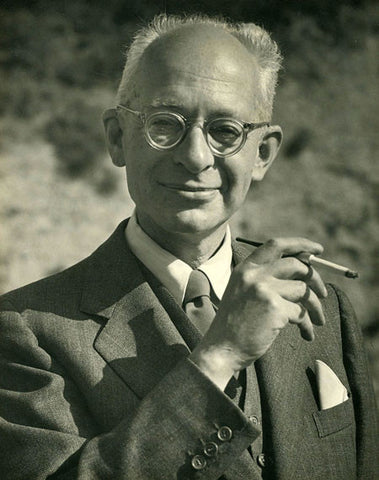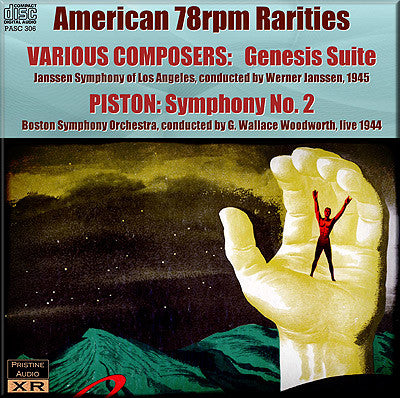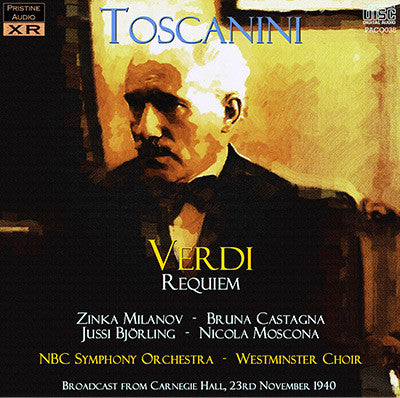Castelnuovo-Tedesco

Mario Castelnuovo-Tedesco (3 April 1895 – 16 March 1968) was an Italian composer. He was known as one of the foremost guitar composers in the twentieth century with almost one hundred compositions for that instrument. In 1939 he migrated to the United States and became a film composer for MGM Studios for some 200 Hollywood movies for the next fifteen years. He also wrote concertos for Jascha Heifetz and Gregor Piatigorsky.
In 1926, Castelnuovo-Tedesco premiered his opera La Mandragola, based on a play by Niccolò Machiavelli. It was the first of his many works inspired by great literature, and which included interpretations of works by Aeschylus, Virgil, John Keats, William Wordsworth, Walt Whitman, Miguel de Cervantes, Federico García Lorca, and especially William Shakespeare. Another major source of inspiration for him was his Jewish heritage, most notably the Bible and Jewish liturgy. His Violin Concerto No. 2 (1931), written at the request of Jascha Heifetz, was also an expression of his pride in his Jewish origins, or as he described it, the "splendor of past days", in the face of rising anti-Semitism that was sweeping across much of Europe.
At the 1932 festival of the International Society of Contemporary Music, held in Venice, Castelnuovo-Tedesco first met the Spanish guitarist Andrés Segovia. The meeting inspired Castelnuovo-Tedesco to write for the guitar, beginning with his Variazioni attraverso i secoli (Variations à travers les siècles), Op. 71 (1932), and later his Guitar Concerto No. 1 (1939). All in all, he wrote almost one hundred compositions for this instrument, which earned him a reputation as one of the foremost composers for the guitar in the twentieth century. Some of them were written and dedicated to Segovia, who was an enthusiast of his style.
The following year the Italian fascist government developed a program toward the arts, which were viewed as a tool for propaganda and promotion of racial ideas.[citation needed] Even before the Italian government promulgated the Italian Racial Laws in 1938, Castelnuovo-Tedesco was banned from the radio and performances of his work were cancelled. The new racial laws, however, convinced him that he should leave Italy.[2] He wrote to Arturo Toscanini, the former musical director of La Scala, who had left Italy in 1933, explaining his plight, and Toscanini responded by promising to sponsor him as an immigrant in the United States. Castelnuovo-Tedesco left Italy in 1939, shortly before the outbreak of World War II.
In the meantime, he wrote his Cello Concerto in G minor, Op. 72, for Gregor Piatigorsky. It was premiered with the dedicatee under Arturo Toscanini in New York in 1935. For Piatigorsky he also wrote a Toccata (1935), and a piece called Greeting Card, Op. 170/3, based on the spelling of Piatigorsky’s name.
Like many artists who fled fascism, Castelnuovo-Tedesco ended up in Hollywood, where, with the help of Jascha Heifetz, he landed a contract with Metro-Goldwyn-Mayer as a film composer. Over the next fifteen years, he worked on scores for some 200 films there and at the other major film studios. Rita Hayworth hired him to write the music for The Loves of Carmen (1948), produced by Hayworth for her Beckworth Productions and released by Columbia Pictures.
Castelnuovo-Tedesco was a significant influence on other major film composers, including Henry Mancini, Nelson Riddle, Herman Stein and André Previn. Jerry Goldsmith, Marty Paich and John Williams were all his pupils,[5] as was Scott Bradley, who studied privately with him while both were on staff at MGM. His relationship to Hollywood was ambiguous: later in life he attempted to deny the influence that it had on his own work, but he also believed that it was an essentially American artform, much as opera was European.
In 1946 he became a U.S. citizen, but he remained very close to Italy, which he frequently visited. In 1958 he won the Concorso Campari with the opera The Merchant of Venice, which was first performed in 1961 at the Maggio Musicale Fiorentino under the baton of Gianandrea Gavazzeni.
In 1962 he wrote Les Guitares bien tempérées for two guitars, a set of 24 preludes and fugues in all 24 major and minor keys, for the duo-guitarists Alexandre Lagoya and Ida Presti. This was inspired by The Well-Tempered Clavier by Johann Sebastian Bach, a composer Castelnuovo-Tedesco revered.
In the United States, Castelnuovo-Tedesco also composed new operas and works based on American poetry, Jewish liturgy, and the Bible. He died in Beverly Hills, California, in 1968 at the age of 72.

Castelnuovo-Tedesco
Mario Castelnuovo-Tedesco (3 April 1895 – 16 March 1968) was an Italian composer. He was known as one of the foremost guitar composers in the twentieth century with almost one hundred compositions for that instrument. In 1939 he migrated to the United States and became a film composer for MGM Studios for some 200 Hollywood movies for the next fifteen years. He also wrote concertos for Jascha Heifetz and Gregor Piatigorsky.
In 1926, ...
PISTON Symphony No. 2
Recorded in 1945/6 & 1944
Total duration: 75:32
Janssen Symphony of Los Angeles
Werner Janssen, conductor
Boston Symphony Orchestra
G. Wallace Woodworth, conductor
VERDI - Overture to Aida
CASTELNUOVO-TEDESCO - Overture to The Taming of the Shrew
Radio broadcasts from 1940
Total duration: 100.01
The Westminster Choir
NBC Symphony Orchestra
conducted by Arturo Toscanini


